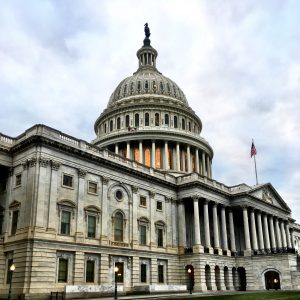
Proponents of repealing the Affordable Care Act revealed yet another new bill Monday, with changes that appear designed to win the vote of Sen. Lisa Murkowski, one of three Republicans who killed the last repeal bill.
The latest version of the Graham-Cassidy bill, like the original, would give block grants to the states in place of federal spending on subsidies for insurance premiums and expanded Medicaid.
As in the original, the block grants in the revised bill would mean a cut in funding for Alaska, compared to what the state gets under current law. But the new proposal does not cut as deeply as the original Graham-Cassidy bill.
“There is a lot of special treatment for Alaska,” Timothy Jost, professor emeritus at Washington and Lee University School of Law, said. He reviewed the current bill draft for “Health Affairs Blog.”
Jost said the revision is peppered with money for states that have low population density, a higher poverty line and other descriptors that apply to Alaska and only a few other states.
“It just basically gives Alaska more money,” Jost said.
But even with the special treatment, Alaska would still lose $99 million over seven years when you compare the block grants to the federal funding in existing law. That’s according to a fact sheet that’s circulating with the proposal.
That’s about a tenth of what Alaska would lose under the original Graham-Cassidy bill.
The bill also makes big changes to the traditional Medicaid program. Bill sponsor Sen. Lindsey Graham said government revenues aren’t keeping pace with health care spending.
“Most of you know that by 2042 the entire revenue stream will be consumed by Medicaid and Medicare spending, unless somebody does something about it,” Graham, R-S.C., said Monday, at the only hearing on the bill so far. It started late due to a protest. Capitol Police carried people out of the hearing room.
Wow. pic.twitter.com/VOlQHBksPy
— Matt Fuller (@MEPFuller) September 25, 2017
Graham’s bill, though, would increase spending for traditional (non-expansion) Medicaid in Alaska. The new version increases the federal matching rate for Alaska and Hawaii. It’s not clear how much money that would bring to Alaska. It’s possible it could more than make up for revenue losses elsewhere in the bill.
But there’s more than money at stake. The new version would also allow states to more easily drop insurance standards in the Affordable Care Act. States would be allowed to undermine protection for people with pre-existing conditions.
That has people like Todd Brown of Anchorage concerned. He said he ran into Sen. Murkowski at the farmer’s market in South Anchorage on Saturday. About 30 people were waiting to talk to her. Some, like him, wanted to talk about the repeal bill.
“I said, you know Lisa, I know there’s going to be a lot of pressure, and a lot of powerful people who are most likely going to offer you, you know, large packages of money and try to trade favors, but I hope you don’t allow them to buy you off,” Brown said.
Brown said Murkowski reassured him.
“She just looked at me real intently and squeezed my hand and said, ‘I don’t get bought off,'” Brown said.
Sen. Dan Sullivan said he’s undecided, too, and it’s not clear either Alaska senator will have to take a position. At least three Republicans have now announced they will vote no. If that holds, it would be enough to kill the bill.
Liz Ruskin is the Washington, D.C., correspondent at Alaska Public Media. Reach her atlruskin@alaskapublic.org. Read more about Lizhere.





